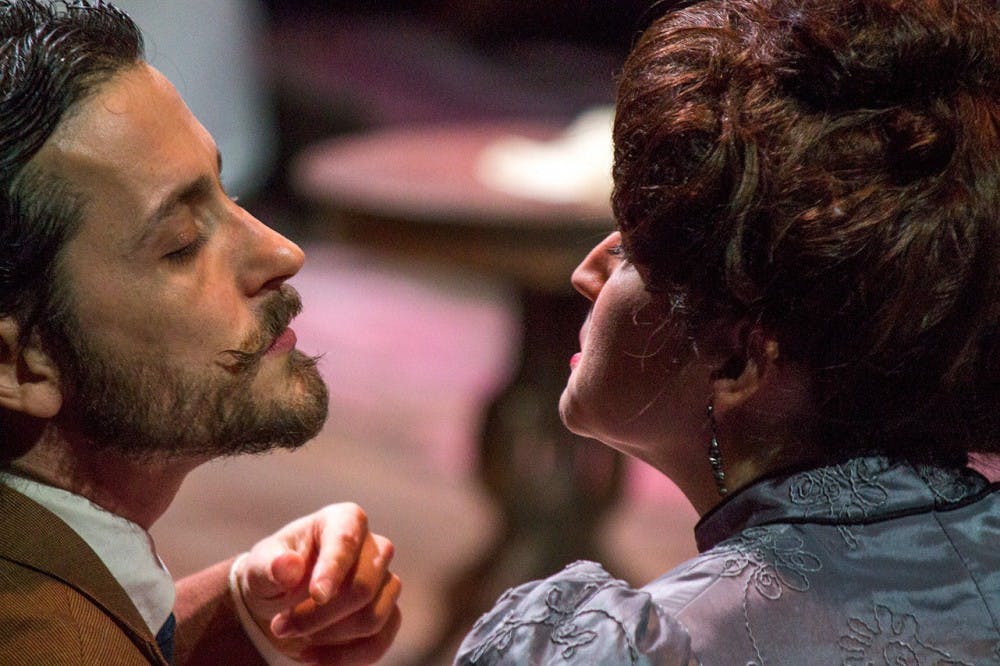For the last production this semester, the Division of Theater is doing Anton Chekhov’s The Cherry Orchard.
The first style project this year was Anton in Show Business, a satire about the making of a regional production of an Anton Chekhov play.
Now, for the second style project, the Division of Theater takes the irony to its fullest by performing a Chekhov play.
The Cherry Orchard will run in the Forum Theater in the Radio-Television Building Thursday through Sunday. The schedule was moved back one day due to flooding in the Forum Theater.
The story follows a family of Russian aristocrats who face financial ruin unless they sell their beloved estate, which includes a well-known cherry orchard.
Kerry Glamsch, a second-year graduate director and director of the play, said it is Chekhov’s humanist nature that appeals to him most. Chekhov is considered one of the greatest writers in history.
“(Chekhov’s) training as a doctor helped him examine life, relationships and people with a doctor’s eye for precision,” Glamsch said.
Alycia Kunkle, who plays Varya, the adopted daughter, said the relationships between characters are her favorite part of the play.
“It’s less the line and more the moments between them that are exciting,” Kunkle, a third-year graduate actor, said.
Her character, in particular, is “in between” she said. Varya is the one who tries to balance the members of her family who are grounded in reality and those who are living a fantasy life.
Falling more on the fantasy side is Lisa Bol’s Madame Ranevskaya, the matriarch of the family and the main female role in the play.
“This has been one of the most challenging roles I think I’ve ever done,” Bol, a third-year graduate actor, said. “She’s still harboring a lot of guilt and grief about a loss that happened five years prior to the start of the play. It’s been really emotionally challenging to connect to.”
To get into that mindset, Bol said she listens to a really haunting lullaby.
This is the first time both Kunkle and Bol are doing Chekhov. Bol said she had to figure out how to still connect with the role while engaging an audience who might already have conceptions of Ranevskaya’s archetype.
Because Chekhov’s work is so revered, audiences can be intimidated by it. However, Bol said it is definitely easier to follow than William Shakespeare’s work. Glamsch combined four different translations for this production and trimmed it down by 15 minutes.
Though the play was written 100 years ago, Glamsch said it is relatable today. Chekhov wrote The Cherry Orchard around the time of the Bolshevik Revolution, a time of political upheaval in Russia. Glamsch said today’s society is on the brink of a major change, even if no one knows what it is just yet.
“We all, in the back of our minds, feel that politically things can’t hold,” he said. “Something has to give.”
@buzzlightmeryl
mg986611@ohio.edu






